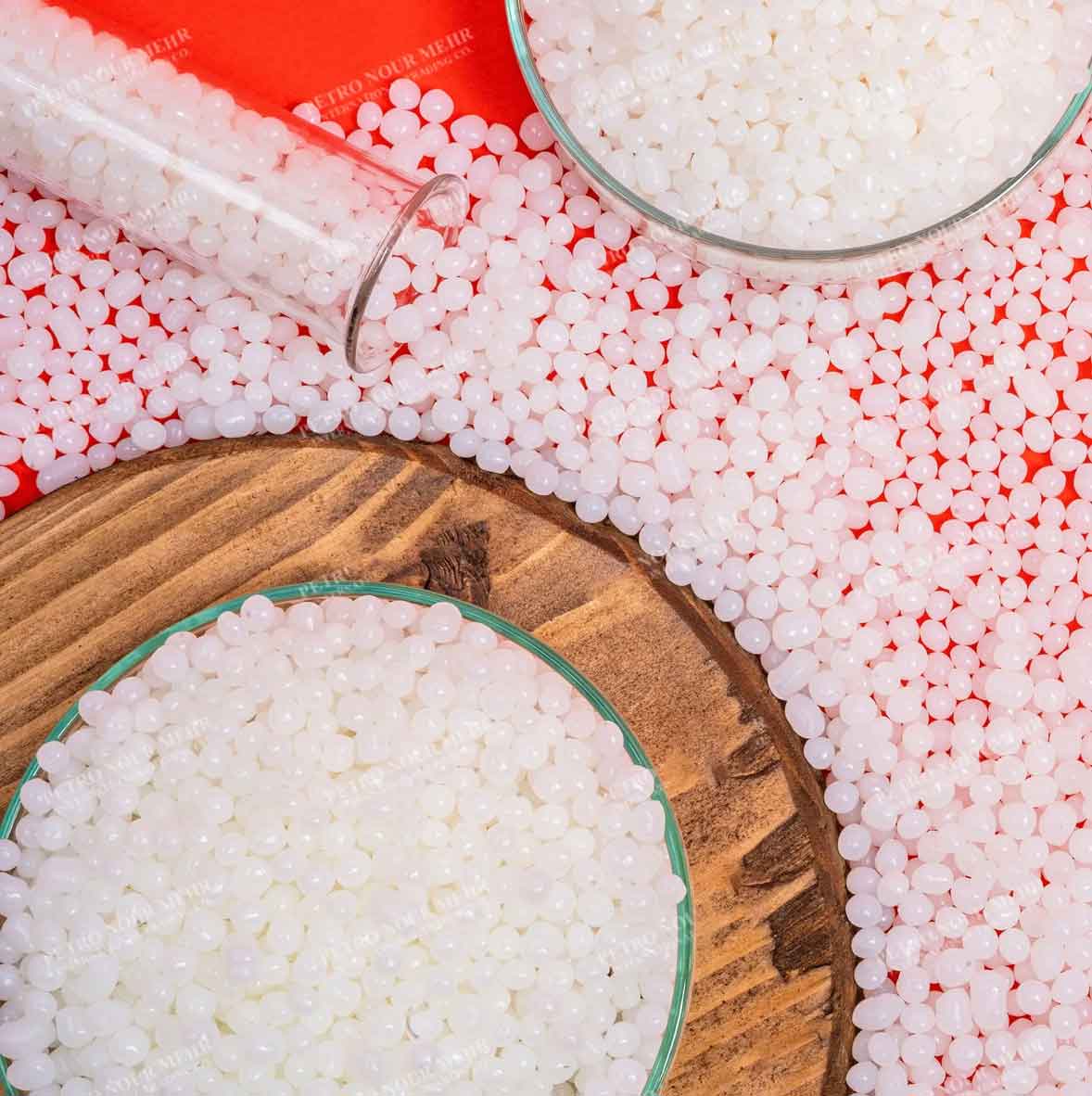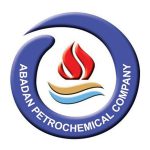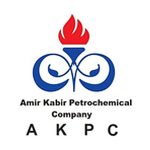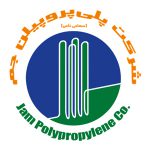ABS
ABS is a cost-effective engineering polymer that belongs to the category of thermoplastic polymers and has an amorphous structure. This material is a composite polymer composed of three primary components: acrylonitrile, butadiene, and styrene. The combination of acrylonitrile, butadiene, and styrene monomers in ABS results in various properties due to the unique characteristics each of these monomers brings. Acrylonitrile enhances resistance to heat and chemical reactions, while butadiene is known for increasing compressive strength and rigidity. Styrene contributes to better moldability and increased hardness. Due to its unique physical and chemical properties, this polymer is utilized in various industries, including the automotive, electronics, and household appliances industries. The presence of these three monomers in different ratios and chain lengths in ABS results in a polymer with diverse properties, making it suitable for various applications such as in the automotive, electronics, and household appliances industries. For more accurate information regarding prices or purchasing the product, it is better to contact the sales department of Petro Nour Mehr Company.

ABS Manufacturers in Iran
Tabriz and Ghaed Basir Petrochemicals and other domestic factories are producers of this polymer material in Iran.
These units are among the largest ABS producers in Iran and play a significant role in supplying domestic needs and exporting this material to global markets.
ABS Manufacturers Worldwide:
ABS producers in the United States include reputable companies with extensive activities in the production of this polymer. Some of these companies are:
- Chevron Phillips Chemical Company: This company is one of the major producers of polymer materials in the U.S. and markets its ABS products under the brand name Ryton.
- INEOS Styrolution: This company is another ABS producer in the U.S. and is recognized as a global leader in the polymer industry.
- LG Chem America: This company also produces ABS in the U.S. and is known for supplying high-quality and up-to-date polymer materials.
These companies are just a few examples of ABS producers in the United States, and the polymer industry in this country is characterized by high diversity and competition, with many companies actively involved in it.
Applications of ABS
ABS polymer is a well-known material used in various industries and applications due to its suitable physical and chemical properties. It can be utilized in the following areas:
- Automotive Industry: ABS is one of the primary materials used in manufacturing both interior and exterior automotive parts, including roofs, door panels, audio systems, and dashboard components. Its impact resistance, favorable mechanical properties, and ease of processing make it an ideal choice for many automotive applications.

- Electronics Industry: ABS is used in the production of electronic components such as keyboards, smartphone cases, internal parts of electronic devices, and computer parts. It is favored as a lighter and more durable alternative to conventional hard plastics.

- Household Appliances: In the production of household appliances like televisions, refrigerators, washing machines, and cooking utensils, ABS serves as a fundamental material. Its resistance to shock, impact, and chemicals makes it suitable for various parts of household appliances.

- Toys and Sports Equipment: ABS is employed in the manufacturing of children’s toys, game controllers, helmets, and various sports equipment. Its impact resistance and other mechanical properties make it a suitable material for producing such products.

- Construction Industry: In the construction industry, ABS is used for applications such as reinforced PVC pipes for plumbing systems and the fabrication of building components.
Overall, ABS polymer is widely used in various industries as a fundamental material due to its mechanical, chemical, and physical properties.
Storage Conditions for ABS
This grade with low density can be stored under various conditions, but there are some guidelines for better preservation of its quality:
- It is ideal to keep these materials dry and cool; a temperature of less than 30 is preferable for storage.
- Keep this polymer material out of direct sunlight and ultraviolet light, since these sources of light may alter its chemical and physical characteristics.
- These substances react with acids and solvents, among other compounds. It is therefore recommended to stay away from direct contact with these kinds of compounds.
- During storage and transportation, ensure that this material is protected from scratches and impacts, as physical damages can lead to changes in its structure and mechanical properties.
- Packaging for this grade should be made of suitable material to protect it from environmental changes and reduce the penetration of water and air into the packaging.
- Certain items can need particular storage conditions. Consult the manufacturer’s directions in this situation.
Packaging for ABS
To package and export ABS granules, various methods can be employed depending on environmental conditions, product requirements, and transportation facilitation for export. Below are some common methods for packaging and exporting this polymer granules:
- Packaging in Jumbo Bags: This is a common method for packaging ABS granules, where the granules are packed in large bags with varying capacities (usually between 500 to 2000 kilograms). These bags protect the product from contamination and moisture and are suitable for road, sea, and air transport.
- Packaging in Small Bags: In this method, the ABS granules are packed in smaller bags with a capacity of around 25 to 50 kilograms. These bags are used for local shops and markets or for small shipments.
- Using Pallets: ABS granules are often packaged on large pallets. This method is utilized for transportation purposes.
Adhering to international standards for packaging, labeling, and transportation conditions is crucial in selecting the appropriate method for packaging and exporting ABS granules. Additionally, it is important to ensure product protection against shocks, moisture, and environmental damage during transportation.
Advantages and Disadvantages of ABS
The positive properties of ABS include good impact resistance, suitable machinability, affordability, dimensional stability, high rigidity, and the ability to be thermoformed. However, this polymer also has some disadvantages, such as being opaque and matte, sensitivity to flames, changes in color and properties when exposed to sunlight, relatively high moisture absorption, and variations in flow properties among different types of ABS.
To address some of these drawbacks, alloying with other materials is often employed. For example, alloying ABS with PVC can enhance flame resistance, and transparent ABS can be obtained by alloying with polymethyl methacrylate. Additionally, ABS can be electroplated to produce reflective, shiny surfaces, such as nameplates, which are used in applications where this characteristic is desired.
Physical and Chemical Properties of ABS:
Due to its composition of three main materials —styrene, butadiene, and acrylonitrile— ABS possesses unique physical and chemical properties. Some of these properties include:
- High compressive and flexural strength: This makes ABS suitable for parts that require durability and impact resistance.
- Temperature resistance: ABS performs well across a range of temperatures, including both high and low extremes.
- Good impact strength: This makes ABS ideal for structural parts or components that are frequently in contact with other materials.
- Ease of processing: ABS can be easily processed into various shapes and sizes.
- Chemical resistance: ABS has good resistance to many chemicals.
- Resistance to acids, bases, oils, and other chemicals: This property makes ABS useful for certain industrial applications, such as in the chemical industry and for producing cleaning agents.
- Elasticity: ABS can be manufactured into elastic materials and can be formed into different shapes and structures through various processes.
- Non-reactivity: ABS does not easily react with acids and bases and is not prone to degradation when exposed to these substances.
- Adhesion: ABS can bond well with various adhesives, which is important for manufacturing diverse parts.
These characteristics make ABS suitable for a variety of industries, including automotive, electronics, household appliances, and the production of commercial and industrial device components.
Types of ABS grades:
Acrylonitrile-Butadiene-Styrene (ABS) polymer comes in various grades, classified based on their physical, chemical, and functional properties. Here are some of the different grades of this polymer:
- General Purpose ABS: Known as the standard grade, this type of polymer features good impact resistance, strength, and heat resistance. It is used for a wide range of general and industrial applications.
- Heat-Resistant ABS: This polymer grade has enhanced resistance to high temperatures and is typically used for parts exposed to high-temperature conditions, such as automotive interiors or electronic components.
- Flame-Retardant ABS: This polymer grade has flame resistance properties, making it suitable for applications requiring fire resistance, such as safety components in the automotive and electronics industries.
- Electrical ABS: This polymer grade has excellent electrical insulating properties, making it suitable for components used in electrical and electronic equipment.
- Transparent ABS: This type of polymer offers high transparency and is used for applications requiring clear parts, such as medical devices or internal components of electronic products.
Each of these ABS grades has specific characteristics and applications, selected based on the needs of various industries and uses.
How to Buy Polyethylene?
- Buy from a reputable and authorized supplier that holds necessary certifications and guarantees quality.
- Compare the prices of these materials in different markets and compare them with the global market price.
- Examine the sales conditions regarding quantity, delivery time, packaging, transportation methods, and payment terms.
- If you intend to import polystyrene from foreign countries, investigate customs and legal regulations and comply with export and import regulations.
- Contact bravopolymer to obtain the most suitable export price based on your conditions.
- After signing the contract, you can place your order.
- Secure and suitable payment methods according to customer preferences are provided by the company.
- Then, the loading stage is completed by selecting and introducing a transport company.
- Necessary documents for customs clearance at the destination city are also provided to customers by bravopolymer.
The largest distributor of polymers in the Middle East


















